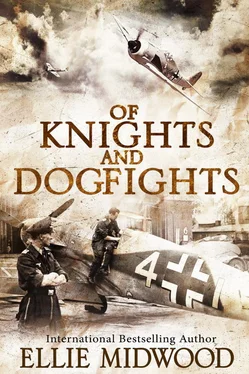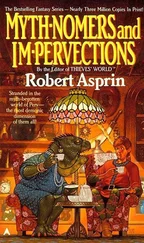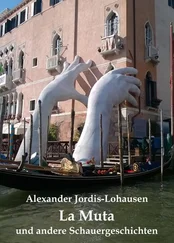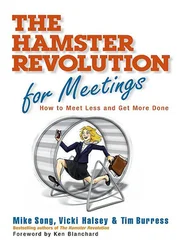Ellie Midwood - Of Knights and Dogfights
Здесь есть возможность читать онлайн «Ellie Midwood - Of Knights and Dogfights» весь текст электронной книги совершенно бесплатно (целиком полную версию без сокращений). В некоторых случаях можно слушать аудио, скачать через торрент в формате fb2 и присутствует краткое содержание. Город: New York, Год выпуска: 2018, ISBN: 2018, Издательство: Independently Published, Жанр: Историческая проза, prose_military, на английском языке. Описание произведения, (предисловие) а так же отзывы посетителей доступны на портале библиотеки ЛибКат.
- Название:Of Knights and Dogfights
- Автор:
- Издательство:Independently Published
- Жанр:
- Год:2018
- Город:New York
- ISBN:978-1-79217-060-7
- Рейтинг книги:3 / 5. Голосов: 1
-
Избранное:Добавить в избранное
- Отзывы:
-
Ваша оценка:
- 60
- 1
- 2
- 3
- 4
- 5
Of Knights and Dogfights: краткое содержание, описание и аннотация
Предлагаем к чтению аннотацию, описание, краткое содержание или предисловие (зависит от того, что написал сам автор книги «Of Knights and Dogfights»). Если вы не нашли необходимую информацию о книге — напишите в комментариях, мы постараемся отыскать её.
“It’s Großdeutsches Reich, soldier. When one has a family at home, it doesn’t leave him many chances for the revolt.”
Of Knights and Dogfights — читать онлайн бесплатно полную книгу (весь текст) целиком
Ниже представлен текст книги, разбитый по страницам. Система сохранения места последней прочитанной страницы, позволяет с удобством читать онлайн бесплатно книгу «Of Knights and Dogfights», без необходимости каждый раз заново искать на чём Вы остановились. Поставьте закладку, и сможете в любой момент перейти на страницу, на которой закончили чтение.
Интервал:
Закладка:
Johann stared in front of himself for a very long moment. “Can I please write that letter now?”
“Just say that you will agree to think about it.”
Johann shot Rudi a glare.
“He won’t send it, unless you say it,” Rudi almost whispered, lowering his eyes.
“I will think about it.”
The commissar shook his hand.
THIRTY-ONE

The Soviet Union. The Gulag, 1945-1951
Hearing the steps behind the door of the bunker, Johann wondered half-heartedly if it was going to be Rudi or the Soviet commissar today. After he declined the NKVD’s proposition, a Russian political officer took charge of him, hoping to succeed where a German Wiedmeyer hadn’t. Johann didn’t care for this new one’s threats so much; Rudi had already mailed his letter to Mina a month ago and therefore, he could sleep peacefully, even though on the dirt floor and in a four by six cell with no light in it.
“Still being an obstinate ass, Brandt?”
The Russian then; not Rudi. Rudi came with cigarettes and coaxing. The Russian◦– with mocking torrents of abuse.
Johann shielded his eyes from the bright light, which poured into the cell.
“Damn, it stinks in here!” The commissar screwed up his face. “Don’t you want to go outside and enjoy some fresh air? Why do you so stubbornly refuse to live like a normal human being?”
“I would. If your government didn’t violate your own Lenin’s principles, I would have long been home with my family. But it seems you only use his postulates when it suits you,” Johann barked back.
The commissar seemed taken aback. “You know Lenin’s works?”
“Yes, I have read all of them.” He did, out of curiosity, when Wiedmeyer defied him with logic and asked, how could he reject something he knew nothing about. So, Johann read them all. Now, he knew exactly what he was rejecting. “You perverted his ideology and still call yourselves communists. You should be ashamed of yourselves.”
The commissar sneered and extracted something out of his pocket. It was an envelope; no, a few of them. “Look what I have here. Your wife Mina writes to you so ardently, every week. It’s bad luck that you can’t read them though, or reply anything back. Such bad luck.”
He tsked several times. Johann stared at the letters without blinking. It was Mina’s handwriting. And the stamp, it was a Berlin one, too. The commissar waved them in front of Johann’s nose as though teasing a dog with a meaty bone. “I bet you’d like to know how your sons are doing. Well? Aren’t you curious?”
Johann forced himself to turn away from him.
“You fascists are indeed heartless bastards!” The commissar exclaimed, turning on his heel. “To not even care one bit for your own wife and children!”
Only after the door slammed shut after him did Johann allow himself to break into soft sobbing.
Of course he cared for his wife and children. He cared so much that not a day went by that he didn’t think of them. Thoughts of Mina were the only thing that got him through days and nights which morphed into one never-ending nightmare when memories of her sweet face and loving arms became the only salvation from this terror around him. On certain days, he was afraid that he would break. He was always afraid that Rudi would come to visit him during such moments of weakness. But no, so far, it was only the Russian commissar and it was rather easy to say no to him.
They took him back to the “fascists” barracks eventually and a few more months passed in the same routine. Work◦– sleep◦– interrogations in between, with Rudi and the Russian altering their roles. Soon, Johann didn’t even care which one was saying what.
It was worse in the accountant’s office on mail days, when the former SS camp fellow would break into a rare smile and even go as far as showing Johann a picture of his family.
“My youngest is two already! Look how big he has grown! A little man…” He always smiled fondly after turning the picture back to himself. “And here’s my Alma. She wrote me a letter, all by herself, imagine that? She’s five. She writes, Papa, come back soon, we all miss you very much. How about that? My little sweetheart.”
That’s when the solitude became unbearable.
Today, it was a Rudi day. He seemed different, agitated for some reason.
“Here.” He quickly thrust something into Johann’s hand. “Read it but fast! If someone finds out I gave it to you, it’ll be off with my head.”
Johann stared at the familiar handwriting in utter disbelief before tearing into the paper like a starved man tearing into a loaf of bread.
“Dearest Johann! We’re all fine here. Gerd and Willi are fine too…”
Johann quickly wiped a tear.
“Your parents and Harald are sending their best regards and hope for your return…”
They’re fine as well◦– thank God! Everybody’s alive… Johann quickly read the rest◦– simple, ordinary life which seemed so distant, so unattainable now. Reluctantly, he handed the letter back to Rudi, who quickly lowered it into his pocket, offering Johann a sad, apologetic grin. Only now did Johann notice that he was holding another piece of paper in his hand. A scowl creased Johann’s brow.
“Just sign this paper, and you will be out of here.” Rudi tilted his head to one side, almost pleading. “You’ll be home with your family in just a few days.”
Even that was a ploy. A little glimpse of human kindness, for which Johann mistook as real. That sly move was a mere sham like everything else here.
“What do you want me to sign?” He rubbed his forehead tiredly.
“First of all, your confession that you, as part of the German Army, maliciously attacked the Soviet Union and committed war crimes during your service. It’s a mere formality,” Rudi interrupted a protest that was ready to fly off Johann’s lips, “nothing more. Just to appease them. And then, you’ll sign your agreement to work for the air force in Eastern Germany. Don’t you want to go back to flying?”
“I do.” Johann nodded. “But not like that.”
“What’s the difference?”
“There’s a big difference. I don’t want my name to be associated with any war crimes! You know perfectly well that I’m not a war criminal! I never did anything wrong besides doing my duty before my country. I shot at the enemy aircraft just like they shot at mine. I never wronged any civilian and never abused a single prisoner of war. I will not confess to something I didn’t do.”
“But it’s a mere nothing!”
“It’s my good name and honor. The only things I have left.”
They fought with him for three more years, with pretty much the same results. Then, at the beginning of 1950, a big announcement came. Some of them would be repatriated in the course of the next few weeks.
“Your name can be on that list too.” It was the camp commandant this time, with his usual kind smile. “In case you change your mind, you know where to find me.”
Johann watched the men depart longingly but never walked into the commandant’s office except for delivering the accounting books.
There was a handful of them, who remained, obstinate asses . They managed to cheer each other up by reminiscing about good old army days and by trading stories when nothing else could be traded. It was bearable for the most part, but then a rare letter would arrive and the smile on a prisoner’s face would drop slowly and morph into a death mask worse than those that Johann had seen on actual dead men’s faces.
Читать дальшеИнтервал:
Закладка:
Похожие книги на «Of Knights and Dogfights»
Представляем Вашему вниманию похожие книги на «Of Knights and Dogfights» списком для выбора. Мы отобрали схожую по названию и смыслу литературу в надежде предоставить читателям больше вариантов отыскать новые, интересные, ещё непрочитанные произведения.
Обсуждение, отзывы о книге «Of Knights and Dogfights» и просто собственные мнения читателей. Оставьте ваши комментарии, напишите, что Вы думаете о произведении, его смысле или главных героях. Укажите что конкретно понравилось, а что нет, и почему Вы так считаете.












